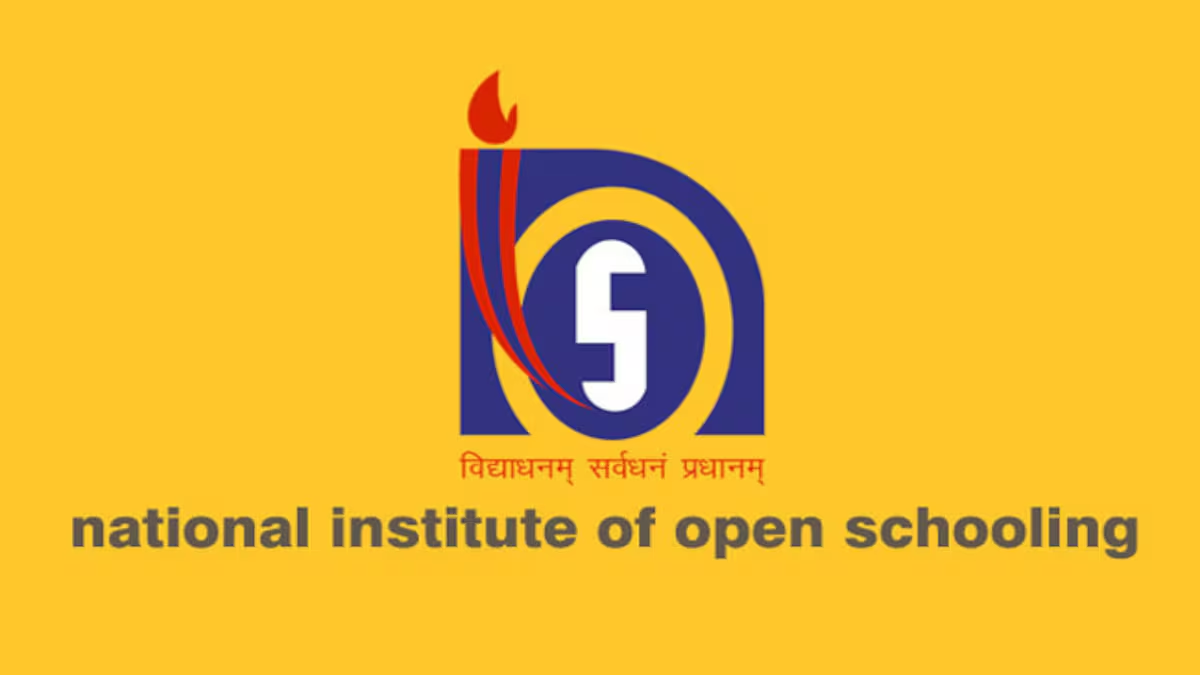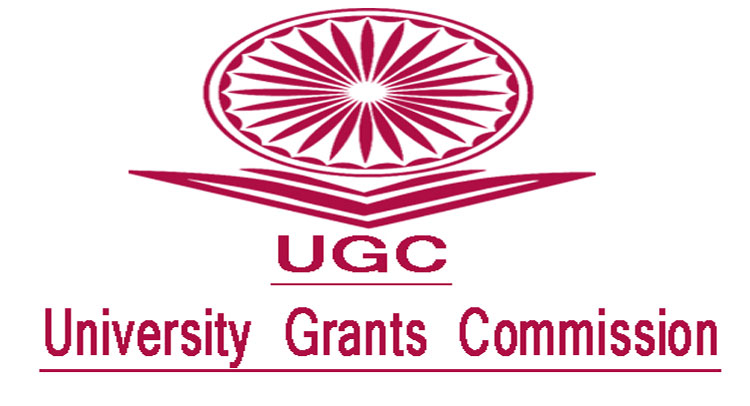The Judicial Service Examination consists of two levels and a Viva Voce test. The first examination is the Judicial Service Preliminary Examination and the next one is the Judicial Service Mains Examination. The candidates shortlisted from the prelims will be eligible to appear for the Main exam. The final merit list is based on both these levels along with the marks obtained in the personality test. Certain states have a requirement of minimum marks in the viva voce test, whereas other states aggregate it to the marks of the Mains and prelims.

Read Also: Top Law Classes in Delhi
List of Judiciary Exams in India
| List of Organisations | Exam Category | Minimum Eligibility |
| Bihar District Judge | High Court of Patna Exam | Bachelor’s Degree in Law, Post-graduation Degree in Law |
| Delhi Junior Judicial Assistant | Delhi High Court Exam | Bachelor’s Degree in Law |
| Karnataka State Oath Commissioner | High Court of Karnataka Exam | Bachelor’s Degree in Law |
| Tamil Nadu District Judge | Madras High Court Exam | Bachelor’s Degree in Law |
| Tamil Nadu Civil Judge | Tamil Nadu Public Service Commission (TNPSC) | Bachelor’s Degree in Law |
| Civil Judge of Maharashtra | Maharashtra Public Service Commission (MPSC) | Bachelor’s Degree in Law |
| Patna Judge Personal Assistant | High Court of Patna Exam | Bachelor’s Degree in Law |
| Uttarakhand Civil Judge | Uttarakhand Public Service Commission (UKPSC) | Bachelor’s Degree in Law |
| Gujarat Civil Judge | High Court of Gujarat Exam | Bachelor’s Degree in Law |
| Jharkhand Civil Judge (Junior Division) | Jharkhand Public Service Commission (JPSC) | Bachelor’s Degree in Law |
| Judicial Services | High Court of Delhi Exam | Bachelor’s Degree in Law |
| Madhya Pradesh Civil Judge | Madhya Pradesh High Court Exam | Bachelor’s Degree in Law |
| Civil Judge of Jammu and Kashmir | Jammu & Kashmir Public Service Commission (JKPSC) | Bachelor’s Degree in Law |
| Chhattisgarh District Judge | High Court of Chhattisgarh Exam | Bachelor’s Degree in Law |
| Uttar Pradesh District Judge | Allahabad High Court Exam | Bachelor’s Degree in Law |
| Gujarat Civil Judges | High Court of Gujarat Exam | Bachelor’s Degree in Law |
| Karnataka State District Judge | High Court of Karnataka Exam | Bachelor’s Degree in Law |
| Civil Judge in West Bengal | West Bengal Public Service Commission (PSCWB) | Bachelor’s Degree in Law |
| Madhya Pradesh District Judge (Entry Level) | High Court of Madhya Pradesh (MPHC) | Bachelor’s Degree in Law |
| Gujarat Civil Judge | High Court of Gujarat Exam | Bachelor’s Degree in Law |
| Delhi Judicial Service | Delhi High Court Examination Council Exam | Bachelor’s Degree in Law |
| Karnataka Civil Judge | High Court of Karnataka Exam | Member of BCI, and Bachelor’s Degree in Law |
| Rajasthan Court Commission | Rajasthan High Court Civil Judge | Bachelor’s Degree in Law |
| Delhi Junior Judicial Assistant | Office of The District & Sessions Judge, Delhi | Bachelor’s Degree in Law |
| Madhya Pradesh Civil Judge | Madhya Pradesh High Court (MPHC) | Bachelor’s Degree in Law |
| Himachal Pradesh High Court Service Commission | Clerks, Junior Office Assistants & Process Servers vacancies | Bachelor’s Degree in Law |
| Bihar Provincial Civil Services | Bihar PCS Exam | Bachelor’s Degree in Law |
| Chhattisgarh Public Service Commission State Service Exam | Judiciary Exam | Bachelor’s Degree in Law, and a minimum of two years’ experience as an advocate |
| Himachal Pradesh Administrative Services Combined Competitive Exam | Competitive State Exam | Bachelor’s Degree in Law |
| Rajasthan Administrator Services Exam | State Level administrator exam | Bachelor’s Degree in Law |
A total of 24 states in India conducts the judicial services exam. The eligibility criteria, exam pattern, pay scale, the recruitment process of all states differs.
Syllabus for Preliminary examination
The preliminary examination generally consists of questions from the following subjects:
- General Knowledge and Current Affairs
- Proficiency In English Language and Aptitude
- Constitutional law
- IPC, CPC, CrPC and The Indian Evidence Act
- Contract Law and Tort Law
- Transfer of Property law
Apart from these, some states cover certain other topics in their syllabus as follows
- Arunachal Pradesh, Assam, Jammu and Kashmir, Maharashtra, Manipur, and Nagaland: Proficiency in the official language of Assam
- Bihar: Elementary general Science, Administrative law, Hindu and Muslim personal laws, Principles of Equity, Law of trusts, Specific Relief Act, Commercial law.
- Chhattisgarh: Accommodation Control Act, Court fees act, Registration Act and Chhattisgarh Land revenue code, Limitation, and Specific relief acts.
- Delhi: Principles Governing Arbitration Law, the Partnership Act.
- Goa: Sales of Goods Act, Land laws of Goa, The Scheduled Tribe and Scheduled Caste (Prevention of Atrocities Act, 1989).
- Karnataka: Karnataka Rent Act.
- Kerala: Kerala Building (Lease and Rent Control) Act.
- Madhya Pradesh: Madhya Pradesh Accommodation Control Act, Madhya Pradesh Land Revenue Code.
Syllabus for the Main examination: The syllabus for the Main examination of Judiciary also varies according to each state. The patterns are as follows:
Assam, Arunachal Pradesh, Manipur, Nagaland, Mizoram, Maharashtra, and Jammu & Kashmir
- Paper I (To test English; 100 marks, 2 hours): Essay, precise writing, Grammar.
- Paper II (To test General Knowledge; 100 marks,2 hours): Objective test, Aptitude Test.
- Paper III (Law; 100marks, 2 hours): Transfer of Property, Civil procedure code, Indian Contract Act, Constitution of India.
- Paper IV (Law; 100 marks, 2 hours): Indian Penal Code, CrPC, Law of Torts, Indian Evidence Act.
Bihar
- Part I: Compulsory Paper- General knowledge including current affairs (150 marks), Elementary Science (100marks), General Hindi (100 marks ), General English (100 marks), Law of evidence and procedure (150 marks) Hindi and English are compulsory papers but only qualifying in nature which requires only 30 marks out of 100.
- Part II: Optional paper(150 marks each)- Constitutional Law of India and England(, Hindu and Muslim Law, Transfer of property, Principles of Equity, Law of trusts and Specific Relief Act, Law of Contract and Torts, Commercial law
Chhattisgarh
- Framing of issues and writing of judgment in Civil Cases (40 marks)
- Framing of charges and writing of judgment in Criminal Cases (40marks)
- Translation: English to Hindi (10marks), Hindi to English(10marks)
Delhi
- Paper I: General Knowledge and Language (250 marks) – Current affairs, Essay, Translation, and precise writing.
- Paper II: Civil Law I( 200 marks)- Indian Contract Act, Indian Sale of Goods Act, Indian Partnership Act, Specific Relief Act, Hindu Law, Muslim Law, Delhi Rent control Act and Law of Torts.
- Paper III: Civil law II (200 marks)- Civil Procedure Code, Law of evidence, Law of Limitation and Law of Registration.
- Paper IV: Criminal Law (200 marks) -Criminal Procedure Code, Indian penal code and Indian Evidence Act
Goa
- Paper I: The Indian Contract act, 1872, The Specific Relief Act, 1963, The Limitation Act, 1963, Sales of Goods Act, 1930, Indian Partnership Act, 1932, The Code of Civil Procedure Code, 1908, Transfer of Property Act, 1882, The Easement Act,1882, Family Laws in Goa , Land Laws in Goa.
- Paper II: The code of Criminal procedure Code, 1973, The Indian Penal Code, 1860 The Evidence Act, 1872, The Scheduled Castes and Scheduled Tribes (Prevention of Atrocities) Act, 1989, The Negotiable Instruments Act, 1881, Essay on Current Legal Topics
Haryana and Punjab
- Paper I: Civil Law I( 200 marks)-Code of Civil procedure, Punjab Courts Act, Indian Contract Act, Indian Sale of Goods Act, Indian Partnership Act, Specific Relief Act.
- Paper II: Civil Law II (200 marks)- Hindu Law, Muslim Law and Customary Law, Law of Registration and Limitation.
- Paper III: Criminal Law (200 marks)- Indian Penal Code, Code of Criminal procedure, Indian Evidence Act.
- Paper IV: English- Essay (25 marks), Words and phrases (25 marks), Comprehension (25 marks), Corrections (25 marks).
- Paper V: Language- Hindi in Devanagari Script (100/150 marks)
Himachal Pradesh
- Paper I: Civil Law I( 200 marks)-Code of Civil procedure, Indian Stamp Act, Indian Evidence Act, Himachal Pradesh Courts Act, Specific Relief Act
- Paper II: Civil Law II (200 marks)- Indian Contract Act, Hindu Law, Transfer of Property Act, Himachal Pradesh Urban Rent Control Act, Indian Limitation Act.
- Paper III: Criminal Law (200 marks)- Indian Penal Code, Code of Criminal procedure, Chapter XVII of Negotiable Instruments Act, HP Excise Act, Wildlife Protection Act, Indian Forest Act.
- Paper IV: English Composition (200 marks).
- Paper V: Language (100 marks)
Jharkhand
- Paper I: Indian Penal Code, Code of Criminal Procedure Code, Indian Evidence Act, Limitation Act.
- Paper II: Civil Procedure Code, Transfer of Property, Indian Contract Act, Sales of Goods Act, Arbitration and Conciliation Act.
- Paper III: Hindu Law, Muslim Law, Rent Control Law, Specific Relief Act, and Jurisprudence.
- Paper IV: Hindi and English.
Karnataka
- Paper I: Translation Paper (100 marks) – Depositions, Judgments, and Documents.
- Paper II: Law paper I (100 marks) – Civil procedure Code, Criminal Procedure Code, Indian Evidence Act, Principles of Pleading and Indian Constitution.
- Paper III: Law paper II (100 marks) – Framing of issues and writing judgments in civil cases.
- Paper IV: Law paper III (100 marks)-Framing of charges and writing judgments in criminal cases
Kerala
- Paper I: English Grammar, General Essays, Translation of Malayalam Documents and Depositions to English, Precise writing.
- Paper II: Indian Contract Act, Transfer of Property, Limitation Act, Specific Relief Act, Easements Act, Kerala Building Act, Hindu Succession Act, Indian Succession Act, Dissolution of Muslim Marriage Act, Kerala Court Fees and Suits Valuation Act, Kerala Stamp Act, Legal Services Authorities act, The Kerala Panchayatha Raj Act, Kerala Municipality Act, Negotiable Instruments Act and Registration Act
- Paper III: Indian Penal Code, Indian Evidence Act, Abkari Act, Negotiable Instruments Act, the Protection of Women from Domestic Violence Act, Juvenile Justice Act, Kerala Police Act, Probation of Offenders Act, Forest Act, NDPS Act.
- Paper IV: Code of Civil Procedure, Civil Rules of Practice, Kerala Civil Courts Act Code of criminal procedure, Criminal Rules of Practice, Framing of charges and issues, Judgment writing.
Madhya Pradesh
- Paper I: Civil Law and procedure.
- Paper II: Criminal law and procedure.
- Paper III: Writing Skill, Court Practice, Translation, and Current Legal Knowledge
- Paper V: Judgment writing.
Odisha
- Paper I: General English.
- Paper II: Procedural laws- Civil procedure code, Criminal procedure code, Indian Evidence Act.
- Paper III: Optional papers- Law of Crime and Law of torts, Hindu and Muslim Law, Law of property, Law of Contract, Jurisprudence, and Constitution of India
Rajasthan
- Paper I: Law paper I- Constitution of India, Civil procedure Code< Contact law, Tort laws, Motor vehicle law, Rent control law, Personal laws, Law of Transfer of Property
- Paper II: Law paper II- Criminal law, Narcotic Law, Law relating to cybercrimes and electricity theft, Law of probation, Law on juvenile delinquency.
- Paper III: Language paper I- Hindi essay writing and grammar
- Paper IV: Language paper II- English essay writing, translation, and grammar
Sikkim
- Paper I: Procedural law, Local law, Indian evidence Act, Limitation Act
- Paper II: Hindu Law, Contract law, Sales of goods act, Partnership Act, Specific Relief Act, General Clauses Act, transfer of property Act, Indian Penal Code, Constitutional law
Uttarakhand
- Paper I: Substantive Law
- Paper II: Evidence and procedure
- Paper III: Revenue and criminal law
- Paper IV: The present-day- Current affairs and general knowledge
- Paper V: Language
Uttar Pradesh
- Paper I: General knowledge- History of India and Indian Culture, Geography of India, Indian Polity, Indian economy, international affairs.
- Paper II: Law- Jurisprudence, International Organizations, Indian constitution, Transfer of property, Indian Evidence Act, Code of criminal procedure, Code of Civil procedure, Contract laws
West Bengal
- Paper I: Compulsory papers- English composition, Bengali, general knowledge, Civil law, Criminal law, Contract law, Transfer of Property Act
- Paper II: Optional papers- Hindu law, Muslim law, Jurisprudence and principles of legislation, Laws relating to companies and insurance, Law of trusts and Specific relief, Partnership Act, Law of limitation, Constitutional law.
Faculties

1. RAJESH RANJAN: IPC, CRPC, CPC, CONTRACT ACT, EVIDENCE ACT, CONSTITUTIONAL LAW, NEGOTIABLE INSTRUMENTS ACT, INTERNATIONAL LAW, TRANSFER OF PROPERTY ACT, HINDU LAW, MUSLIM LAW, PARTNERSHIP ACT, JUDGMENT WRITING
2. NAINA SEHGAL: SPECIFIC RELIEF ACT, RENT CONTROL ACT, LIMITATION ACT, INDIAN EASEMENT ACT, TRUST ACT, SALE OF GOODS ACT, LAW OF TORTS
3. GS and CURRENT AFFAIRS when notification comes
4. ESSAY: RAJESH RANJAN, SUNIL SINGH
5. TRANSLATION: AKHILESH MISHRA
6. ENGLISH: RAJESH RANJAN
7. LOCAL LAWS: When notification comes teachers of respective states are invited to conduct classes.
REGULAR BATCH:
- 4 hrs Monday to Friday
- Saturday: GS and Misc.
- Total course length 9 months (approx)
- Fees: 35000/ plus GST
STUDY MATERIALS
- BOOKLETS OF SUBSTANTIVE LAWS + PROCEDURAL LAWS EXCEPT CrPC, CPC, LOCAL LAWS, GS , ESSAY, TRANSLATION, ENGLISH
- HANDOUTS OF LATEST SUPREME COURT JUDGMENTS WITH ANALYSIS BY RESPECTIVE FACULTIES.
- EXHAUSTIVE CLASSROOM DICTÀTION
Read Also:
- All India Judicial Services | AIJS
- Career Avenues in Judicial services
- NLSIU Bengaluru to launch three-year interdisciplinary LLB for graduates














**mitolyn**
Mitolyn is a carefully developed, plant-based formula created to help support metabolic efficiency and encourage healthy, lasting weight management.